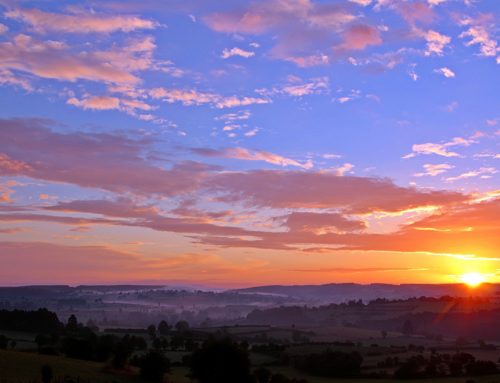As I write we are in our second week of lockdown and the weather is bitterly cold, certainly not the kind of weather for thinking about seeds growing, but that’s just where our Gospel reading takes us. Jesus is speaking about the Kingdom of God and when he does he uses lots of different images to spark our imagination. He never actually defines what he means by the Kingdom of God and at times it seems to be a place where we might belong with God and in God, and at other times it seems to be a state of mind. With such varied images planted in our mind, Jesus seems to be saying that the rule or reign of God will be far more than we will ever be able to grasp, but let your imagination run wild.
In speaking about the Kingdom of God Jesus tells stories, stories that pick up images from everyday life in the first century, and stories that both surprise and challenge us. The fact that Jesus uses everyday, ordinary images is also a very important part of the message. Sometimes we might get the impression that God is known only in the spectacular and powerful events or experiences of life, like when Moses encountered God in the Burning Bush or when Saul was blinded on the road to Damascus by a vision of the risen Christ, but Jesus wants us to know that God is more often found in the ordinary events of our lives.
And yet we tend to put down the ordinary. We say things like ‘it’s been a pretty ordinary day,’ meaning that nothing much happened. We say ‘I feel a bit ordinary’ meaning a bit off colour. The word ‘ordinary’ seems to have taken on a slightly negative connotation. We look forward to special events, but would they be special if everything was spectacular? I remember when having a chicken roast was something we had only on very special occasions. It was something to savour and look forward to. But now with fast food options it’s a lot more common. For special events such as birthdays, anniversaries, Christmas and Easter, to be truly special we need the ordinary times and in the church we actually have a whole season after Pentecost that is often called ‘Ordinary Time’.
We might think of Christmas, Easter and Pentecost as the big events where the seed of God’s word is sown in us, and the rest of the year as the time when that seed germinates and grows within and among us as we attend to the presence of God in the ordinary events of our lives.
Our faith teaches us that God is present in our world and that every day is a day where we worship God in the way we live. Jesus once said, ‘Truly I tell you, unless you change and become like children, you will never enter the kingdom of heaven.’
What is it about children that Jesus was thinking about? One possible answer is their ability to notice and wonder in the ordinary things of life. It’s a great joy for me to spend time with my grandchildren and I am constantly amazed at their interest in the little things of life and their ability to enjoy them. Perhaps we need to cultivate a sense of wonder and take time to notice the beauty around us, and acknowledge the generosity, the kindness or thoughtfulness of others.
Re-discovering wonder in the everyday events might be one aspect of recovering an awareness of God in the ordinary, and another might be fostering gratitude by thanking God for the small things that give us life, lift our spirits, bring us joy. Jesus speaks about seed scattered on the ground which germinates and grows without any effort on our behalf. Is this Jesus’ way of saying that God is at work in ordinary – often unseen ways? It’s an invitation to notice God’s presence among us.
Peter





